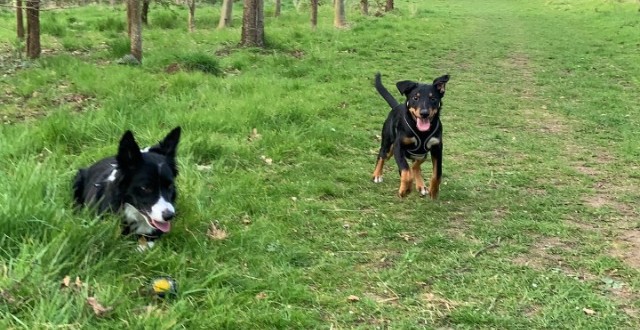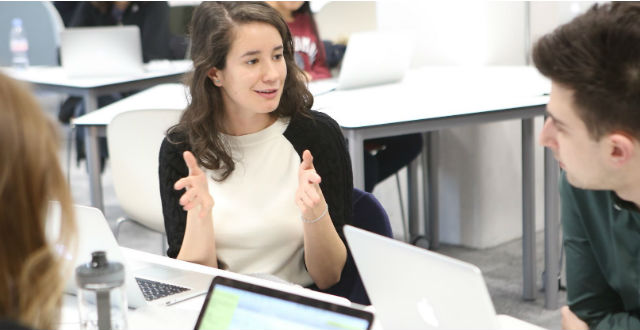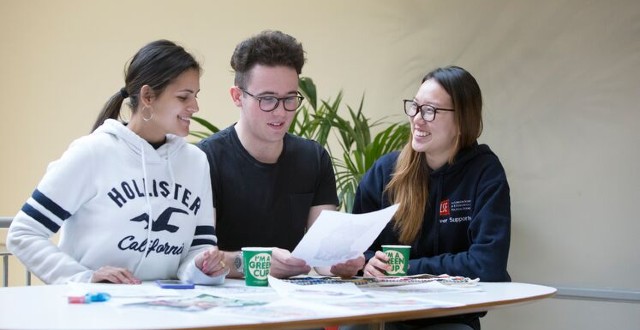Lots of students who study abroad talk about a “honeymoon period”, where everything about their new home is exciting and new. I did not experience this.
In fact, my first instinct was to take the first flight back to London. Incredibly jetlagged, I arrived in San Francisco at around 9.00pm only to be greeted by an unfriendly customs officer whose first call of action was to take me to a detainment room. This, of course, is not a typical arrival experience – COVID-19 travel restrictions meant that I needed to provide a really good reason for my travel into the States. After what felt like an eternity (about forty minutes), I was allowed to leave.
By this point, I didn’t have the mental capacity to work out where I could call an Uber from (in SFO, Ubers are only accessible from the departures terminal). I settled for the first taxi I could find, even though I knew it would be pricey. It was over twice as expensive as the Uber, but I didn’t feel like I had a choice. If only I’d listened to my parents advice to book a transfer, I thought.

My nerves and stress faded for a short while during my journey across the Bay, while I watched the sun go down and the city lights come on. My taxi driver was very chatty, eager to tell me how I’d no longer have to worry about the rain, and how great California is. Upon arriving at my accommodation, I was tasked with figuring out where everything was – the first night I didn’t even have a pillow (I slept on a sweatshirt stuffed into a tote bag!) and my room card didn’t initially work.
Needless to say, my year abroad didn’t exactly get off to the best start. But since then I’ve come to call this place home. In this blog, I want to cover some of the things that have helped me to feel more settled into life at Berkeley. Whether you are a UK student studying abroad or an international student getting used to life in London, I hope that reading about my experience can help in some small way.
Build a routine
Moving abroad completely reset my body clock. It took at least two or three days for me to recover from jet lag and settle into a human sleeping pattern. Never underestimate the power of a good night’s sleep! I’d say it took me around a month to establish healthy patterns in terms of sleep, eating, and exercising. When you first arrive, it’s only natural to want to go out often and experience everything you can. After all, a year goes by so quickly. But, for me at least, sleeping at a regular time is important in making me feel settled and comfortable.
Find a community
Although the initial weeks can be hectic and may feel like freshers week all over again, be brave! I guarantee that most people will be feeling the same way and will appreciate you reaching out to them. Making friends is arguably the best way to make a place feel like home. When you’re so far away from family and friends back home, the new friends you make will inevitably become your family.

On the flipside, it is also important to know when to “say no” to social events. I’m a natural introvert, so my social battery tends to drain after meeting so many new people in a short period of time. It is equally beneficial for me to spend time with myself, to recuperate and re-energise. Sometimes it can be difficult due to inevitable FOMO, but striking a balance between socialising and recharging is a personal decision – whatever works for you.
Exercise
Being separated from familiar activities can be one of the most difficult things about studying abroad. For me, continuing to engage in my favourite activities definitely helped me to maintain my sanity. I also struggled with this during Michaelmas Term of my first year at LSE, but found that exercising at the gym helped me to feel more at home in a new city. At Berkeley, it’s no different. The Recreational Sports Facility (aka the gym) is free for students, and although it was initially closed due to COVID restrictions, I now like to go three or four times a week. This has gone a long way at helping me feel more comfortable and happier here.
Go outside
I didn’t travel halfway across the world to experience studying abroad from my bedroom. Berkeley’s campus is beautiful and expansive, and I’ve definitely found getting outdoors is one of the best ways to relieve stress. One weekend I was particularly exhausted and ended up not leaving my accommodation for three days. This made me feel even more exhausted, and as soon as I left to go on a short walk with one of my friends, I realised how much better I felt getting outside. There are also plenty of hikes around campus, like the Fire Trails and the classic Big C. You can even take the F bus to San Francisco (for free!) if you miss being in a real city.

Be kind to yourself
I’ve been a perfectionist for as long as I can remember, but I often remind myself that the study abroad experience is not only about grades. It is also about exploration and cultural immersion. If you’re too stressed about uni work, these experiences may pass you by and you might not be able to appreciate them as they happen. Striking a work-life balance is something you’ll eventually have to achieve once you start work, so why not get into healthy habits now?
I’ve been a perfectionist for as long as I can remember, but I often remind myself that the study abroad experience is not only about grades.
Finally: if you need help, reach out
If you’re struggling, talk to the GO LSE team (you’ll be assigned a GO LSE team member to check in with at regular points in the year); your academic mentor (special shout out to mine for always responding to me, no matter how silly I think my concern is!); the Berkeley International Office; or the University Health Services. And, of course, don’t forget that – even with the time difference – friends and family back home are only a phone call way.
The following pages provide further information about the support available to LSE and UC Berkeley students:
- LSE Mental Health Support
- LSE Student Counselling Service
- UC Berkeley Mental Health Support
- UC Berkeley Counselling and Psychological Services





